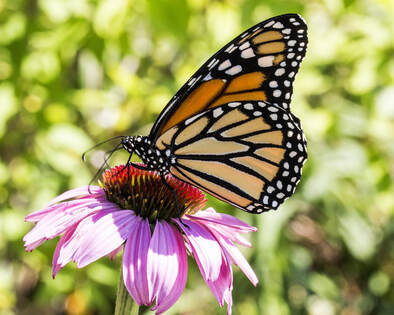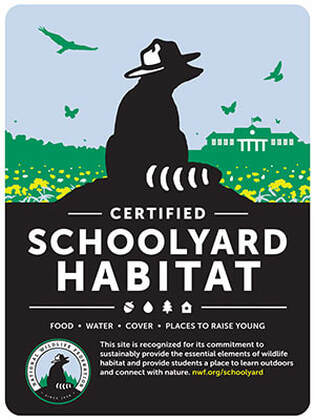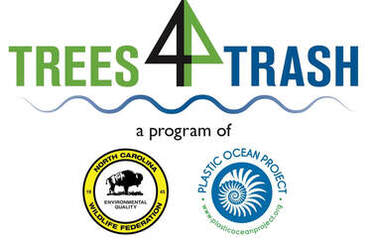KIDS IN NATURE DAY
This is a free yearly event held at Woodland Discovery located at 8755 Poplar Tent Rd, Concord NC, an enchanting outdoor setting where children can explore, imagine and learn. CWA partners with Great Outdoors University of NCWF and Woodland Discovery to offer a variety of outdoor activities for families. Learn more HERE
ADOPT-A-STREAM
This is a bi-annual event held at the Irish Buffalo Creek Basin in the Gibson Village Community in Concord, NC to clean up the trash that collects in and around the creek. Learn more HERE
SCHOOL YARD CERTIFICATION
|
Join schools across the country who have been recognized for creating havens for wildlife that provide the essential elements for healthy and sustainable wildlife habitats. These schools have earned the distinction of being part of National Wildlife Federation's Certified Wildlife Habitat® program.
Cabarrus County currently has over 15 schools certified in the system. It is free to certify school yards and CWA will provide a sign while quantities last. Learn more about certifying HERE. The National Wildlife Federation has additional information on school certification HERE |
TREES4TRASH
|
North Carolina Wildlife Federation (NCWF) is tackling critical conservation issues head-on with Trees4Trash (T4T), a new program launched in partnership with Plastic Ocean Project as part of the organization’s 75th anniversary.
In May 2020, during COVID-19, CWA participated in the Trees4Trash Program, collecting 395 pounds of trash and raising $335. We will be planting trees and perennials from this event in Nov. 2020. Learn more about the T4T Program here ncwf.org/trees-for-trash/ Removing trash and planting native species will help restore complex ecosystems that can then provide residents with healthier water and air and more moderate temperatures. T4T will also help wildlife thrive and provide critical wildlife corridors for migratory butterflies and birds. See how CWA has participated here |
“In the past, we have asked one thing of our gardens: that they be pretty. Now they have to support life, sequester carbon, feed pollinators and manage water.” -Doug Tallamy”


